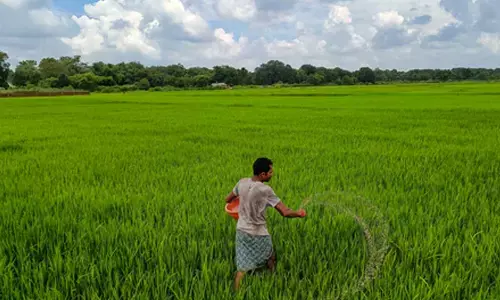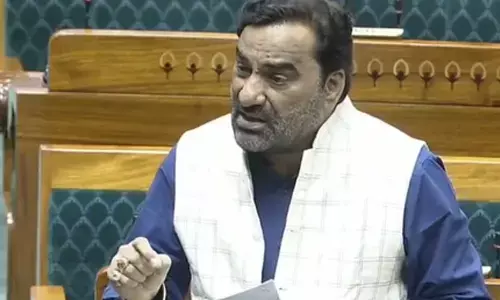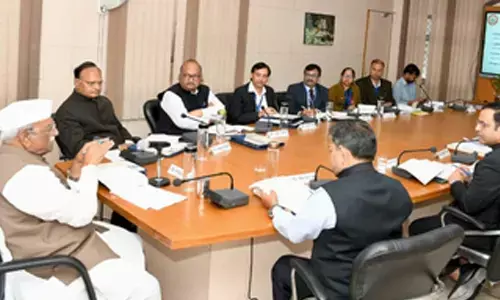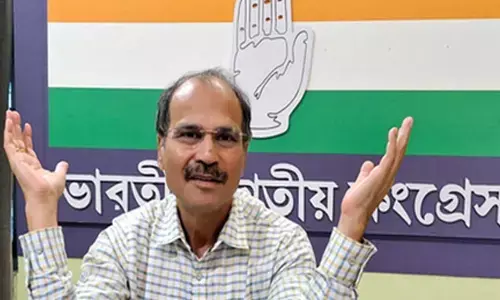Lokesh urges Nirmala to exempt handlooms from GST
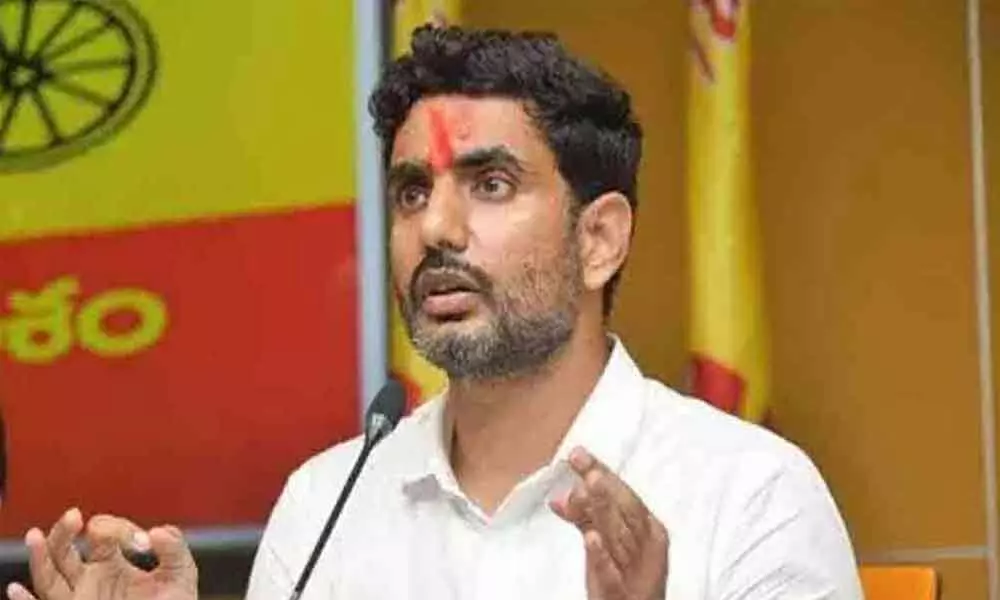
Nara Lokesh
- In a letter, TDP leader points out that no govt since independence has levied taxes on this sector
- Says 65 lakh people are dependent on the sector directly or indirectly in AP
Vijayawada: TDP national general secretary Nara Lokesh on Saturday urged Union finance minister Nirmala Sitharaman to ease burden on weavers and artisan communities by exempting handicrafts from the GST regime.
In a letter to the minister here on Saturday, Lokesh stressed on the need for the Union government to seriously consider exempting the handloom sector from GST altogether in the upcoming GST Council Meeting. Country's textile heritage must be protected by providing subsidies and by removing unbearable burdens on weavers and artisans, he said.
Lokesh said that in Andhra Pradesh, over 65 lakh people were dependent on the handloom sector directly or indirectly. There were about 3.3 lakh handlooms in the state, with 16 lakh weavers, spinners, and workers involved in this trade. Since independence, no government had levied taxes on this sector till date, he said.
Lokesh told Sitharaman that in 2017, when the GST rates were first imposed on textiles, the then TDP government urged the Centre against such a move. It was distressing to note that these taxes were only sought to be increased now. Added to this burden was the additional 25 per cent tax being imposed on raw materials such as colours, chemicals and thread.
Such a tax regime would destroy the country's indigenous textile sector altogether. Lokesh pointed out that even Telangana and Tamil Nadu had sought tax waiver or limiting it to 5 per cent. The TDP MLC said Andhra Pradesh's contribution to the textile heritage of India had been huge and significant.
The state contributed to unique khadi and handloom traditions. Most famously, Gandhiji was struck by the delicate warp and weft of Ponduru khadi when he visited Srikakulam in North Andhra.
Lokesh drew her attention to the colourful and exuberant saris of Peddada and Uppada, the wonderful cotton sarees of Mangalagiri, the textiles of Pedana, Srikalahasti, and Dharmavaram and those of Chirala and Venkatagiri. These were but a few of the many villages and towns across AP with a great heritage of khadi and handloom crafts.
He said in the past two years, he had interacted with hundreds of weavers across Andhra Pradesh. Most textile making units, especially in the handloom sector, were small. Their profit margins tend to be low, between 2-5 per cent on average. Lokesh said with higher tax burden and rising input costs, the production and marketing costs for such labour-intensive products would become unmanageable.












